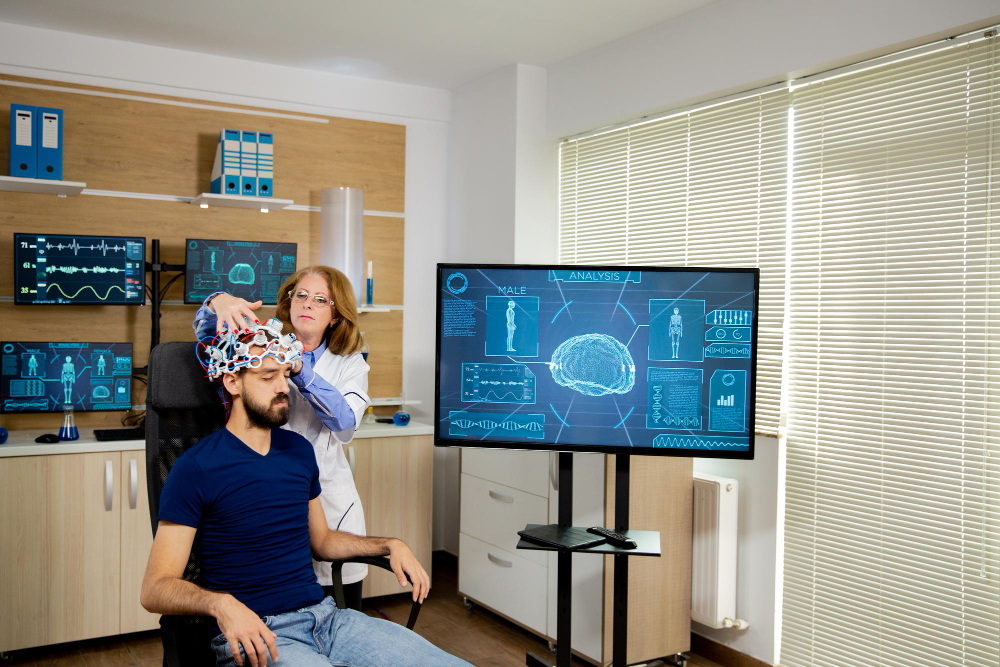The Human Microbiome — Why Gut Health Controls Your Whole Body
In recent years, scientists have uncovered something extraordinary: your gut isn’t just responsible for digesting food — it’s a command center for your overall health. This intricate ecosystem of trillions of bacteria, viruses, and fungi, known as the human microbiome, influences everything from your immune system to your mood, and even your risk of chronic diseases.
In this article, we’ll explore what the microbiome is, how it works, and why maintaining a healthy gut might be the most important thing you can do for your body and mind.
What Is the Human Microbiome?
The human microbiome refers to the vast community of microorganisms that live in and on your body — mostly concentrated in your gut.
An average person carries around 100 trillion microbes, outnumbering human cells by about 10 to 1. These tiny life forms coexist in a delicate balance, performing essential functions that keep you alive and healthy.
Key Functions of the Gut Microbiome
- Digesting food and producing vital nutrients.
- Training the immune system to recognize harmful invaders.
- Regulating metabolism and fat storage.
- Protecting the gut lining and preventing inflammation.
- Communicating with the brain, influencing mood and behavior.
Essentially, your microbiome is an invisible organ — one that works silently to keep your body in balance.
The Gut-Brain Axis: How Your Microbiome Talks to Your Mind
Have you ever had a “gut feeling”? It turns out, there’s real science behind it.
Your gut and brain are directly connected through a network of nerves, hormones, and chemical messengers known as the gut-brain axis. This communication highway allows your microbiome to influence mood, stress levels, and cognitive function.
How It Works
- Microbes produce neurotransmitters like serotonin and dopamine — the same chemicals that regulate happiness and motivation.
- The vagus nerve, a direct link between your gut and brain, transmits microbial signals that affect emotional responses.
- Gut imbalance (dysbiosis) can contribute to anxiety, depression, and even neurodegenerative diseases like Alzheimer’s.
Studies show that people with a healthy gut microbiome tend to experience better mental health and emotional stability, underscoring the powerful mind-body connection.
Microbiome and Immunity: Your Inner Defense System
Nearly 70% of your immune system resides in the gut. The microbiome trains immune cells to distinguish between friendly microbes and harmful pathogens.
When your gut is in balance, it acts as a shield — preventing infections, reducing inflammation, and supporting recovery. But when harmful bacteria outnumber beneficial ones, it can trigger autoimmune reactions and chronic inflammation, leading to diseases like:
- Rheumatoid arthritis
- Inflammatory bowel disease (IBD)
- Type 1 diabetes
- Allergies and asthma
A healthy microbiome acts as your first line of defense, keeping the immune system calm, efficient, and well-regulated.
Gut Health and Chronic Diseases
Modern research has linked poor gut health to a surprising number of chronic conditions.
1. Obesity and Metabolic Syndrome
Some microbes help digest complex carbs and control fat storage. An imbalance can lead to insulin resistance and weight gain.
2. Heart Disease
Certain bacteria produce compounds like TMAO, which may contribute to plaque buildup in arteries.
3. Cancer
Studies show that gut bacteria can influence how well patients respond to immunotherapy and chemotherapy treatments.
4. Diabetes
A disrupted microbiome can affect blood sugar control and insulin sensitivity.
The takeaway? Fixing your gut may prevent or even reverse chronic diseases that were once thought to be purely genetic or lifestyle-based.
Microbiome and Skin Health
Surprisingly, your gut also influences the health of your skin — through what researchers call the gut-skin axis.
Conditions like acne, eczema, psoriasis, and rosacea often improve when gut inflammation is reduced.
A balanced microbiome helps regulate inflammation, hormone levels, and detoxification — all of which contribute to clear, glowing skin.
What Damages the Microbiome?
Several modern lifestyle factors can disrupt your gut balance:
- Antibiotic overuse (kills good bacteria along with bad).
- Processed foods high in sugar and artificial additives.
- Chronic stress and sleep deprivation.
- Sedentary lifestyle.
- Environmental toxins like pesticides and pollutants.
Over time, these factors cause dysbiosis — an imbalance that can lead to inflammation, digestive problems, and weakened immunity.
How to Strengthen Your Gut Microbiome
Fortunately, it’s possible to restore balance and diversity in your microbiome through small, consistent habits.
1. Eat More Fiber
Fiber-rich foods like fruits, vegetables, and whole grains act as prebiotics — fuel for beneficial gut bacteria.
2. Add Fermented Foods
Include yogurt, kefir, kimchi, sauerkraut, and kombucha to introduce probiotics (live bacteria) that replenish your gut.
3. Limit Processed Foods
Avoid sugar, artificial sweeteners, and fried foods, which promote harmful bacteria.
4. Manage Stress
Mindfulness, exercise, and good sleep reduce stress hormones that harm gut bacteria.
5. Stay Active
Regular exercise increases microbial diversity and supports healthy digestion.
6. Avoid Unnecessary Antibiotics
Only use antibiotics when prescribed — and consider probiotic supplements afterward.
With consistency, these habits can rebuild your microbiome and enhance your energy, mood, and resilience.
The Future of Microbiome Science
Microbiome research is one of the fastest-growing fields in medicine. Scientists are developing microbiome-based therapies to treat diseases once thought untreatable.
Emerging Innovations
- Fecal microbiota transplants (FMT) for severe gut infections.
- Personalized probiotic treatments tailored to your genetic and microbial profile.
- Microbiome sequencing to predict disease risk before symptoms appear.
In the near future, your gut bacteria might become your most important medical record — guiding everything from diet to disease prevention.
Conclusion: Heal the Gut, Heal the Body
The human microbiome is more than a collection of microbes — it’s the foundation of life itself.
From digestion and immunity to mental clarity and emotional balance, your gut microbiome shapes nearly every system in your body.
By nurturing it with the right foods, habits, and care, you can unlock long-lasting vitality, stronger immunity, and better mental health.
When it comes to total wellness, one truth stands clear:
“A healthy gut means a healthy you.”











